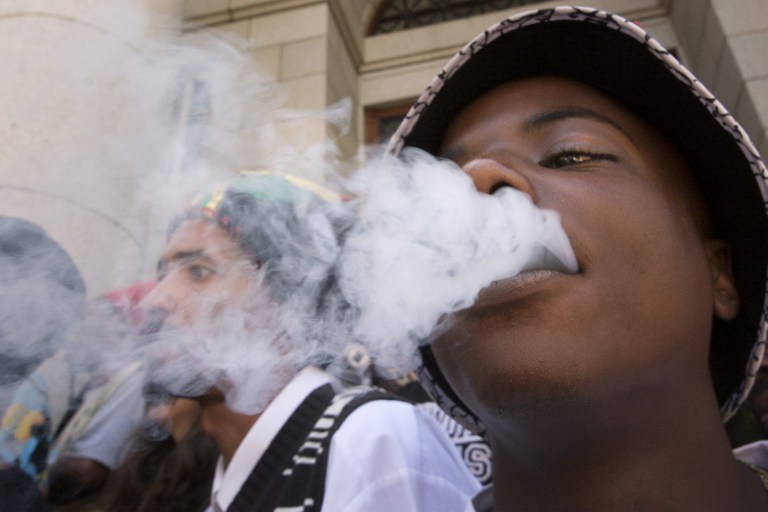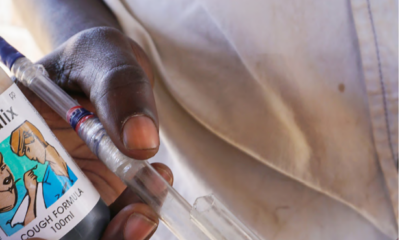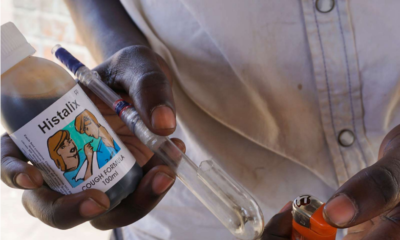DONALD MADONDO
IT is a warm summer morning and l make my way to the office in the horrible Harare traffic. At times you cannot avoid swearing at the nauseating driving that has characterised our streets.
What is more frustrating is that members of the Zimbabwe Republic Police are very visible, but not to restore order.
Instead, they aid and abate the disorder by receiving bribes to let go errant drivers. I get to the office and collect my files as l rush to what is supposed to be the citadel of justice, but its name betrays what is churned out of Rotten Row, rotten justice if one can describe it as such.
A large billboard greets you at the courts grounds with the words “World-class access to justice”.
One day we will ask the billboard to take to the witness stand and testify whether what it sees everyday, including at night at the rotten Rotten Row Court, equates to access to worldclass justice.
This is the same complex where a number of judgments have been handed down denying Job Sikhala bail for more than 430 days, and still counting.
It is the same court complex that has let go people who have looted state coffers dry whilst those who have exercised their rights as enshrined in the constitution are convicted without blinking.
As I stand in one of the courtrooms awaiting my turn to have my client’s matter remanded yet again because the state is not ready for trial, unrepresented accused persons who are in custody are brought into court.
As they are being remanded, one after another, they raise hands and request either bail or to be removed from remand as they have been behind bars, some for two years others for six months, which by the way is all a very long period to be in remand prison without being brought to trial.
It is a constitutional right to be brought to trial within a reasonable time.
Some of the accused who are brought into court by prisons and correctional services are clearly confused by what is taking place. I whisper to the prosecutor or the prison official who is nearby and inquire what these indigent citizens have done.
The answer is simple, “chikule chinopenga ichi”, meaning “he is a mad inmate” the official retorts.
Most of the time the court closes its eyes to the apparent failure to comprehend proceedings by the accused and the state prosecutor shouts a date: come back on the 4th of next month.
The court interpreter repeats same in the local language and, as if the accused are bags of potatoes being loaded into a truck, the prosecutor shouts “next” and the next matter is heard as we forget the accused person who has just left the dock until he or she appears again on the next date.
I process my matter and, as I walk out, I see some accused persons being brought in by members of the police force. By the way, it is still a police “force” and not a service.
A familiar police officer greets me and l enquire on the nature of his guests. “Mutoriro” (methamphetamine), he quips, as he makes his way to have them vetted.
The vetting itself is a process where the state prosecutors decide whether a matter should be prosecuted or not.
However, when we shall interview the billboard outside the court complex we shall surely ask it whether this process is done in the manner the constitution envisages it, independently without fear or favour.
We shall hear it all from the billboard. It is a promise l will keep. When the “mutoriro” guys get into court and the charge is read, the allegations are that they were caught in possession of methamphetamine.
The court interpreter who reads the charge clearly says something quite divorced to the word methamphetamine.
Those occupying the court gallery all look astounded on what kind of nuclear weapon the accused was found in possession of as no one understands the word. The redemption comes as the interpreter repeats the charge in Shona and methamphetamine or crystal meth comes out as mutoriro.
As the lawyer for the accused rises to challenge placement of his clients on remand, he makes a point that is startling. He raises an argument that the Dangerous Drugs Act Chapter 15:02 does not provide for a drug called methamphetamine but rather for a drug called methylenedioxymethamphetamine which in any event is not crystal meth or mutoriro which was found in the possession of his clients.
It takes a bit of tongue twisting to even pronounce the words. The look on the faces of the non-legal audience sitting in the courts gallery is so dramatic, you can literally touch it.
The expressions tell the story that mutoriro is a dangerous drug and there should not be much ado about anything besides locking those who bring in this dangerous substance into our communities.
However, in legal parlance it is not all black and white, sometimes things are in fifty shades of grey. They can become hazy so fast and quick, simple things will become so complex it will take the inner legal eye to see the atoms of what constitutes the issues.
Zimbabwe as a country has several challenges, but if not quickly dealt with and addressed, the scourge of drugs will be the albatross that will send a whole generation to death chambers.
There is consensus that drugs are destroying the young and old alike but there seems to be no willingness to nip the bane in the bud.
Dangerous drugs are regulated under the Dangerous Drugs Act Chapter 15:02. However, a cursory reading of the schedule of dangerous drugs in the Act will leave one with a headache, from just trying to pronounce the names of the drugs, let alone understanding what in the world is dextropropoxyphene or dioxaphetylbutyrate or dimethylthiambutene.
These are the terms used to name dangerous drugs that we know from where we come from as simply mutoriro, guka makafela, bronco, you name them.
Simple weed is given all sorts of scientific names like hemp, cannabis, yet we know it as mbanje in the street.
We have complicated a menace to society by naming what we already know using scientific terms that one wonders whether the arresting details themselves understand the meaning of the terms.
The fight against drugs must start with simplifying what is being proscribed as dangerous. Name mutoriro as it is and simply define it by using what in law are called deeming provisions.
If a substance contains a, b and c, or a combination of all, it will be deemed to be mutoriro. It surely does not need the interpretation of the Medicines Control Authority of Zimbabwe to know what is killing mostly our young people in the streets.
The public and law enforcement agents alike must be able to read the Dangerous Drugs Act and know what is being spoken about.
After we know the simple names and substances of the dangerous drugs, we must also proceed, with lightning speed, to protect whistleblowers who report those dealing in these substances.
Rarely do we find those bringing in drugs and manufacturing them being prosecuted. Are they bigwigs who cannot be touched?
The streets know who is bringing in drugs and who is making money out of a dying generation. However, we do not have any protection mechanisms for those who know the culprits. A piece of whistleblower legislation is long overdue.
The war will surely not be won as long as we send hungry and poorly remunerated police officers to confront drug lords swimming in dollars.
Surely, if confronted with a political figure who usually makes a police officer act in a partisan manner, can the police officer withstand the pressure not to be compromised?
Our law enforcement mechanism definitely needs a complete overhaul if the drugs menace is to be won.
As I sign out, we totally ignored the looting of gold as a non-event. How will we take the drugs menace seriously? Let’s however, start in a simple manner with what is within our reach.
Like Martin Luther King, I have a dream that one day we will get it right, Zimbabwe.
We will be sober up from even the mutoriro that induces the drama of MP recalls barely two months after elections.
*About the writer: Donald Madondo is a pseudonym for a local lawyer



















